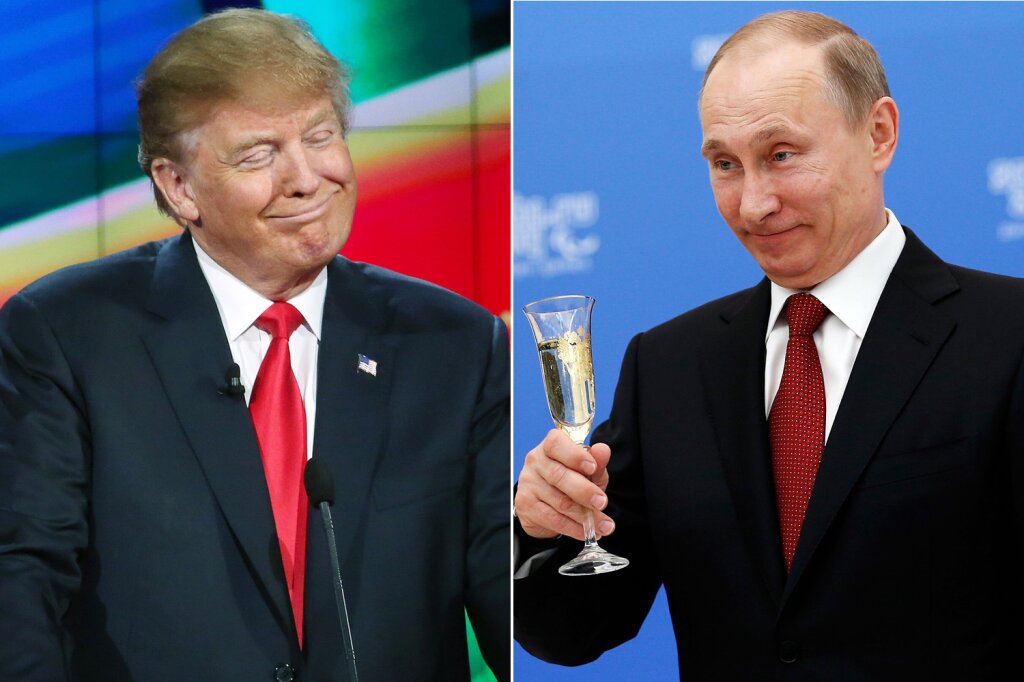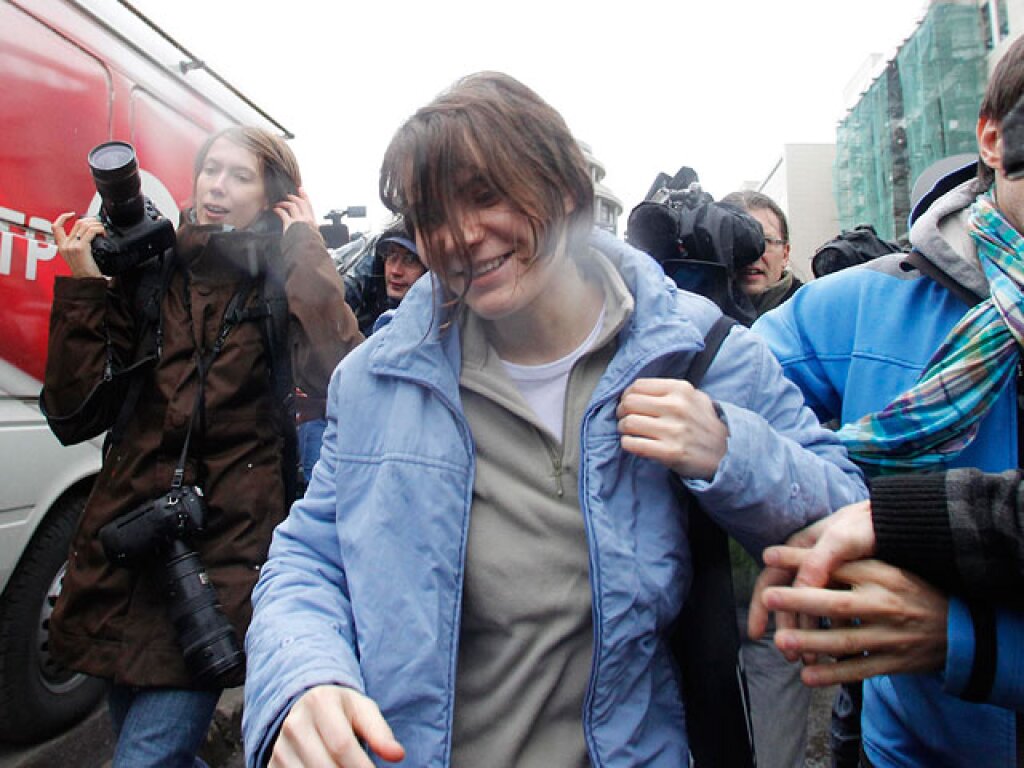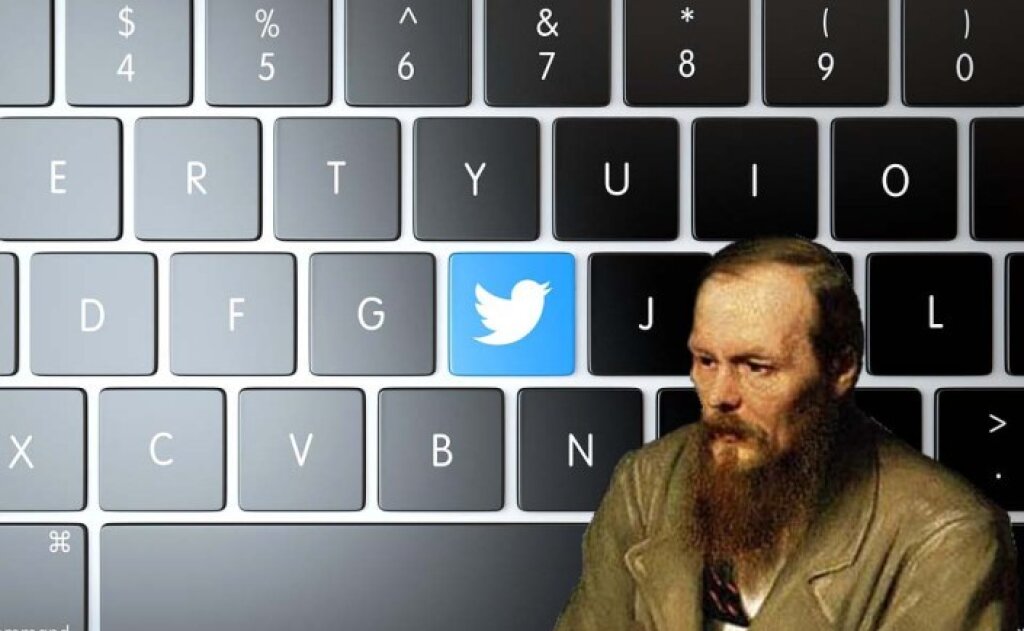Pity the poor Russia expert. We’re like the old Maytag repairman, sitting in our forgotten offices, hoping someone will need our help.
But when our experience is called upon, it’s usually not good news. No one seeks out a grizzled old veteran of the theory wars to solve a Dostoevsky emergency. Pundits and politicians don’t look to us for help with the latest Tolstoy crisis.
Worst of all, though, is when Russia is relevant because its recent history suggests parallels to American current events. Like so many other Western countries, the United States is caught up in an authoritarian moment. And Russia watchers have seen this before.
Much, but not all, of Russia’s recent political history sets a dismal precedent. Masha Gessen, who has lived through enough political upheaval for several lifetimes, did us all a great service in her recent essay about enduring (and resisting) an autocrat. But there is more that needs to be said.
This is not about the Putin/Trump “bromance,” a catchy idea that is a distraction from the real problem. Nor do I have in mind Russia’ alleged interference in the American presidential election; I don’t feel qualified to assess the evidence, and doubt that there will ever be a smoking gun that opponents won’t dismiss as a water pistol.
Yes, Trump’s call to “make America great again” sounds suspiciously like Putin’s salvation of Russia by “bringing the country up from its knees.” Yes, Trump’s casual disdain for constraints on conflict of interest suggests that the two leaders could be building competitive kleptocracies. And, yes, Trump’s reflexive accusation that any protests against him are paid for by the opposition seems awfully familiar for anyone who watches the Russian news. There are enough parallels between Putinism and Trumpism to be cause for concern, but that is not the worst of it.
The worst of it is that all indications point to Trumpism being a far greater danger. Gessen is absolutely correct to view both men as authoritarians, but the circumstances of their acquisition of power, their differences in intellect and temperament, and the stability of one-party rule in Russia point to divergent outcomes. Though Putin has flirted with the extreme Right and Russian nationalism, he has (so far) managed to co-opt and contain them; Trump reveals more and more of his debt to white nationalism with each passing day.
Putin is not a fascist, in part because he does not need to be. Trump ran a consistently fascist campaign.
Why “Fascism”?
“Fascism” is a loaded term in both countries, devalued in the USA by an old leftist tendency to decry any right-wing initiative as the second coming of Mussolini, and rejected in Russia based on the Soviet victory over Nazism in 1945. Russians can espouse fascist ideas while rejecting the label based on a hereditary exemption, as if World War II had introduced a vaccine into the body politic (“My grandfather died fighting fascists, so you have no right to accuse me”). For most Americans, fascism is a historical curiosity that was handily dispatched by our boys “over there."
Trump spent over a year both encouraging and failing to discourage violence among his supporters, singling out particular groups as enemies that must be defeated (Muslims, Mexicans, immigrants, journalists). He has revived the tired straw man of “Political Correctness" from the culture wars of the 1980s in order to distinguish effete intellectuals from “real” Americans, explicitly promised persecution based on religion and national origin, pointed to some of the worst chapters in recent American history as precedent (the Japanese internment camps), appealed to a mythical time when America was “great” (a time when women and minorities kept their mouths shut), and encouraged a cult of personality characterized by belligerence, machismo, and an incapacity to tolerate criticism.
Without fascism, Trump has nothing.
The Will to Power
Putin and Trump have a knack for keeping their critics guessing, and for leveraging celebrity for power. As always, though, the devil is in the details.
When Putin first took to the public stage in 1999, he was a complete unknown. Moreover, he seemed unknowable. Putin was an odd candidate for a cult, because he initially displayed precious few signs of actual personality. When George W. Bush claimed in 2001 that he had looked into Putin’s eyes and seen his “soul,” the obvious ironic response practically wrote itself: who knew that he had one?
Though Putin’s first two terms saw a consolidation of state control over the media and an increased emphasis on Russian sovereignty as the be-all and end-all of the country’s destiny, these eight years now seem remarkable for the leader’s light touch. Yes, journalists were murdered, and opposition was suppressed, but it was easy for ordinary people not to take notice. This was also the period in which his personality cult began, with songs, posters, buttons, and children’s books extolling his manly virtues.
Only in his current, third term, with his celebrity long established, with plummeting oil prices and challenges on his borders, has Putin not only thoroughly embraced his own personality cult; he has revealed just how authoritarian he is willing to be.
For Putin, power preceded any personal magnetism; any cult of personality is a consequence of his position rather than a prerequisite. Trump, of course, is the exact opposite.
American Idiot
America has known Trump for quite a long time. He has been both idol and clown for the course of his entire public life (just his longevity as a target for Doonesbury is striking). Presumably, he should be the ultimate known quantity. And yet, as a politician, Trump was almost as much of a cipher as Putin. Certainly, his racism was apparent to anyone who bothered to look (from the housing lawsuits to the lynch-mob intensity of his attacks on the now-exonerated Central Park Five). But he was friendly with democratic leaders, hobnobbed with Hillary, and changed his party affiliation seven times.
Trump appeared to be all surface, a creation of the markets and the media. Where Putin ruled out participating in political advertisements during his first presidential campaign (comparing such ads to the choice between Snickers and Tampax), Trump has put his entire life (politics included) at the service of his brand. Political positions were secondary, and it was only when he hit on birtherism that he found an ideology his brand could call its own.
Their divergent paths to power point to their radically different connections with their public supporters. In running what is, for all intents and purposes, a single-party state, Putin and his team are well positioned to defang any opposition from the Right by assimilating just enough of their ideas as to render such parties insignificant. As his adventures in Ukraine show, Putin is a master at mobilizing public sentiment just enough to support his goals, but then reigning it back to avoid mass movements he might not be able to control.
And this is why, for all his authoritarianism, Putin has never been (and probably never will be) a fascist leader. Rather than simply arriving on a wave of popular support, Putin controls the wave on which he rides.
By contrast, Trump has only two bases of power; for the moment, they seem to be working in concert. First, there is the populist discontent fueled by racism, or at least a willingness to dismiss the campaign’s racism as unimportant, and second, there is the Alt-Right, the ideologues of his movement. Trump may well receive the aid and comfort of Republicans in Washington, but he cannot count on them. Instead, he can count on Brietbart, and its ability to channel his supporters’ rage.
Putin and Trump also differ in the scope of their ambitions. Though the tired accusation that Putin wants to rebuild the USSR is overblown, his geopolitical goals unequivocally include reasserting claims to a broader sphere of interest (again, see Ukraine, but not only Ukraine). Putin is expansionist where Trump is isolationist. Putin wants cross-border influence, while Trump (as you might have heard) wants to build a wall.
Slippery Slopes
Where, then, are the lessons I promised? They have to do with the Russian example of weakened institutions, heightened national security, and the normalization of authoritarian power.
Putin’s authority was abetted by the weakness of the institutions he inherited from a government that happily disbanded legislatures and fired on its opponents in the early days of Yeltsin’s regime, and then manipulated the media to ensure the ailing, unpopular president's reelection. Liberals at home and abroad turned a blind eye, because they feared the same consequences that Yeltsin was staving off. The ends apparently justified the means, but the means came back to bite everyone’s collective backside.
American institutions have an obviously better, and longer, track record. But there are unsettling parallels between the suppression of dissent under Putin and the rise of the national security state over the last fifteen years of American life.
Putin used the 1999 apartment bombings (which his government may or may not have engineered) as a pretext for tightening the screws. The threat of domestic terrorism justified many a national sin; more recently, it is “extremism” (a label slapped on virtually every expression of opposition) that justifies the suppression of liberty.
In the United States since 9/11, citizens have grown more and more accustomed to invasions of their privacy and incursions on their personal liberty, all in the name of the “War on Terror.” Trump is not responsible for this abysmal situation, which began under Bush/Cheney and was kept largely intact under Obama. But Trump is capitalizing on fifteen years of terror at the thought of Terror in order to render the unspeakable spoken.
In Putin’s third term, as the government has doubled down on nationalist myths about the people’s destiny, the crackpot figures I have been studying for two decades (Alexander Prokhanov and Alexander Dugin being only the most famous among them) have quietly moved from the margins to the center of public discourse. People who once could barely get air time are being consulted on state television for their expertise. This is a process that we are already seeing at home with the domestication of Breitbart and the appointment of Steve Bannon as Trump’s chief strategist.
Putin’s third term has also shown the power of the dog whistle. When the government outlaws so-called “gay propaganda,” it is not banning homosexuality or explicitly declaring open season on gays. But the law has normalized an ugly, bigoted way of talking about the LGBT community (while rendering any positive discussions of queer people virtually illegal). Even worse, it has marked LGBT people as a category worthy of disdain; the spike in anti-LGBT hate crimes should surprise no one.
Meanwhile, while Trump is making America great again, hate crimes against Muslims, African Americans, immigrants, women and Jews are on the rise. Again, surprising no one.
Though I continue to believe that Putin’s regime is not now, and is unlikely to become, fascist, Russia’s recent experience with authoritarianism should be a reminder of the need to fight fascism at home, and to fight it quickly.
Authoritarianism in Putin’s Russia is the slow-cook variety; like the proverbial lobster boiled to death by increments, the Russian public became accustomed to increased state control over a period of many years. The American security state is not a perfect parallel, which is one of the few causes for optimism.
What we must learn most of all from Russia’s example is the danger of normalization. The much-quoted, late-lamented Umberto Eco was absolutely correct when he said of fascism: “Our duty is to uncover it and point the finger at any of its new instances—every day and in every part of the world.” To fight authoritarianism, we have to recognize it, and refuse to assent. To fight fascism, we have to name it.
These are not normal times. We must never pretend otherwise.



